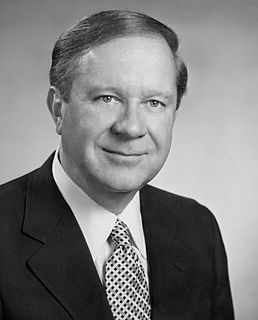A Quote by Mitch McConnell
I'm in favor of doing tax reform, but I think tax reform ought to be revenue neutral as it was back during the [Ronald] Reagan years. We've resolved this issue.
Related Quotes
I think the Ronald Reagan tax reform proposals are a step toward distributive justice. They redistribute the tax burden more equitably and more progressively among individuals and call upon business to carry a somewhat larger proportion of the total tax load. Both of these are steps toward equity and distributive justice.
Now, the president would like to do tax reform, which would obviously lower rates for most people in America and make the tax code fair and get rid of loopholes and special treatment. But absent tax reform, the president believes the right way to get our fiscal house in order is ask the wealthy to pay their fair share.































